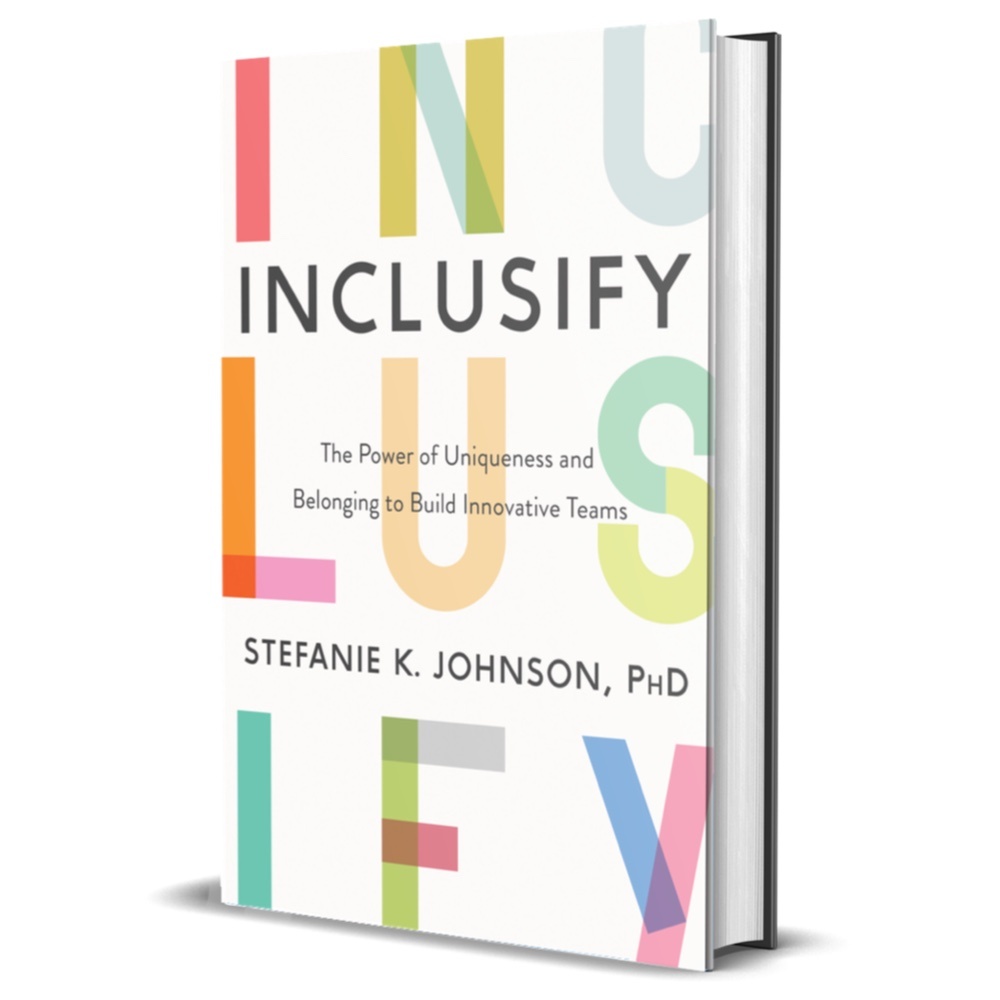Sharing my learnings from the book, Inclusify by Stefanie Johnson
Inclusify by Stefanie Johnson
Humans have two basic desires: to stand out and to fit in. Companies respond by creating groups that tend to the extreme—where everyone fits in and no one stands out, or where everyone stands out and no one fits in. How do we find that happy medium where workers can demonstrate their individuality while also feeling they belong?
The answer, according to Stefanie Johnson, is to Inclusify. In this essential handbook, she explains what it means to Inclusify and how it can be used to strengthen any business. Inclusifying—unlike “diversifying” or “including”— implies a continuous, sustained effort towards helping diverse teams feel engaged, empowered, accepted, and valued. It’s no use having diversity if everyone feels like an outsider, she contends.

- happy workers are productive workers. So your job as a manager should be that of what the author calls the Inclusifyer: a leader who celebrates diverse perspectives and makes sure everyone feels a sense of belonging.
- No one wants to feel like they don’t belong. Which is why inclusivity is so important – especially in the workplace. People do their best work when they feel like they’re a valued part of the organization. When they feel like they belong, they’re happier and more engaged.
- Maintaining a sense of belonging among all your workers is full of pitfalls. Even dedicated CEOs with the best intentions have fallen short – often because of their own unconscious biases. Through upbringing, experiences, and the stories all around us we all develop certain biases.
- Sadly, we can’t simply banish bias once and for all. But we can fight to dismantle it. And one of the best ways to begin this process is learning to recognize bias in our leaders.
- there are six kinds of managers, and they’re all liable to make mistakes when it comes to Inclusifying.
- Meritocracy Manager – One popular theory is that every business should run as a meritocracy. Results can be tallied and those who perform best get rewarded. There are three lessons every manager should learn. First, the playing field is not level. Second, systems create inequality. And third, we live in a post-#MeToo world.
- Culture Crusader – dreams of a workforce that is bonded by shared ideals, but pursuing this vision is often detrimental to diversity and inclusivity. What often results is a bunch of people who look, act, and think just like their leader.
- Team Players – work hard to be in charge, but they can fall short in helping others.
- White Knight – someone who wants to swoop in and come to the rescue of a person in need. But despite their best intentions, managers who are White Knights can sometimes do more harm than good.
- Shepherd – can seem to be playing favorites, but with the right strategy they can become great Inclusifyers.
- Optimists – will speak highly of inclusivity, but tends to think that these issues will work themselves out.
- Inclusifyer creates a culture that emphasized both the uniqueness of individuals and a sense of belonging.
- Helpful strategies for Team Players include empathy, learning, and aligning. In this case, empathy involves trying to remember what it was like when they were just starting out, and what it felt like when they were excluded. Learning can be a valuable tool in understanding different opinions. Team Players can align themselves and become allies through Bystander Training. Through Bystander Training, the workforce can be reassured that any behavior that makes people feel excluded or uncomfortable can be brought to the leader’s attention immediately.
- White Knights’ behavior can be corrected through strategies that include fairness and empowerment. Fairness can be achieved by cleaning up office housework. This means getting rid of low-value assignments. One way White Knights can empower, rather than undermine, is by asking a lot of their workers. If you have high expectations, and you let them be known, you’ll be giving your employees a chance to flourish and impress.
- The better strategies for Shepherds to be true Inclusifyers involve empathy and transparency. empathy involves making sure that everyone has an equal voice. As for transparency, this is about being aware of how your actions may be viewed by others, and being open about your reasoning.
- Optimists just need the right leadership strategies, which include support and motivation. For support, be open about your commitment by setting public goals and making the changes needed to get there. for motivation, this is about putting your positivity into practice and celebrating diversity.
- being an Inclusifyer involves a two-fold strategy: celebrating uniqueness while fostering a sense of belonging.


Leave a Reply